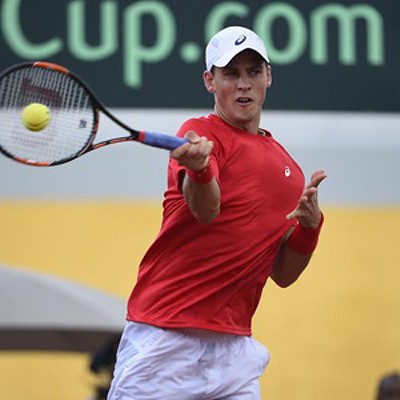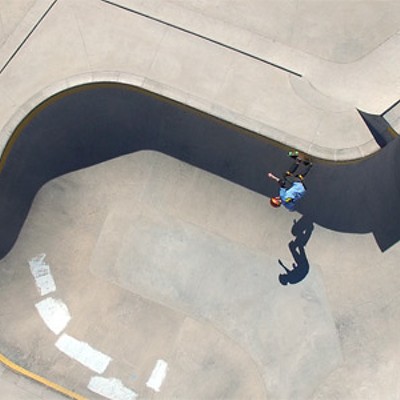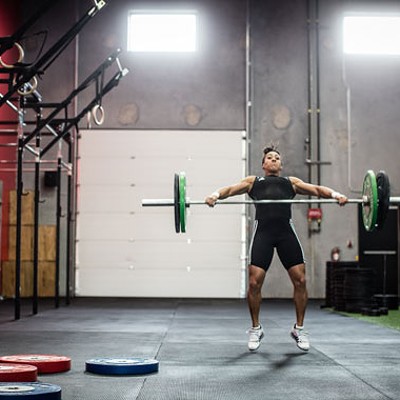When it comes to international hockey, Canada has an all-consuming passion for the World Juniors. No country cares about junior hockey quite the same way. While other countries turn their attention to and make their name at the Olympics or the World Hockey Championship, Canadians get twitchy at the thought of the annual World Junior Championships held in December and January. For two weeks, Canada goes gaga over the best under-20 players as they compete for supremacy. But there is a rival---only one other country has double-digit World Junior gold medal totals, and those two countries go head-to-head in Halifax next week for the Canada-Russia Challenge.
Anything less than a gold is looked upon as a failure for Team Canada fans, and those who skate home with gold are fêted like heroes. Players like two-time gold medal winner Marty Murray and Newfoundland's John Slaney, who would score a third-period gold medal-clinching goal against the Russians, are immortalized as legends regardless of how their professional careers in the NHL turned out.
"It's uniquely Canadian," says Kevin Prendergast of Hockey Canada, when asked about the scrutiny Team Canada's selection process undergoes. "Canadians are passionate."
There are over 350,000 junior hockey players in Canada who are eligible to be selected for the World Junior team, but only 22 of those players will lace up their skates for Canada. It's a chance for the best junior players in the country to skate into hockey lore or be relegated to obscurity and mediocrity. No one remembers the 1981 edition of the team that finished seventh, but hockey fans fondly recall the 1982 grouping that sang an a cappella version of "O Canada" when tournament organizers failed to play the anthem for the gold medal-winning squad.
Prendergast, a former SMU Huskies quarterback and executive with the Edmonton Oilers, is Team Canada's head scout. He helped shape Canada's last two World Junior teams, and is a key part of the selection process building to the world championship tournament that starts this December in Ufa, Russia. "Being in my third year, I've had the chance to see these kids grow from 17-year-olds into 19-year-olds," he says. "I have what you call a book on these players. It's much easier now for me than it was in my first year."
The final December picks that trim the roster down to its 22 players are subject to an unparalleled level of scrutiny. Twitter chirping and blog backbiting over Academy Award and Polaris Prize snubs is nothing compared to the armchair quarterbacking going on when Team Canada makes its cuts. You want proof? Look at the outrage in Halifax last year when Cole Harbour's latest phenom, 16-year-old Nathan MacKinnon, wasn't named to the team.
Never mind that it's a common occurrence for 16-year-olds to not make the under-20 team, Mooseheads fans saw red. "I was in Halifax right after they announced the picks," Prendergast says. "I was in the Midtown having dinner before a game and I had fans yelling at me because MacKinnon wasn't on the team." Common sense and logic have no place when agonizing about Canada's pursuit of a 16th World Junior title.
"Nathan MacKinnon is a star and he's going to be a super player in the National Hockey League," says Prendergast. "But at the [World Juniors] you know even Mario Lemieux had trouble playing in that tournament. They couldn't put him on the ice. I think a lot of people forget that there's a big difference between a 16-year-old and a 20-year-old."
Lemieux had such a bad experience playing in the tournament at age 16 that he sought a provincial court ruling to prevent himself from being forced to play in the following year's tournament.
"For a 16-year-old to step in and play, especially for Canada, it's very very difficult to do," says Prendergast. "You want to put them on a playing field where they're going to be successful, not sit their ass on the bench and not get an opportunity to play."
London's summer Olympics may be the biggest thing happening in the sporting world, but in Canada thoughts have already turned to December's World Juniors thanks to the Canada-Russia Challenge. A four-game series being held this week, with games Thursday and Friday in Yarolsav, Russia, and Monday and Tuesday in Halifax, the Challenge is the convergence of three major hockey events. It is replacing Hockey Canada's annual National Junior Team Summer Development Camp, as well as marking the 40th anniversary of the almost-mythical 1972 Summit Series and the first anniversary of the tragic plane crash that claimed 44 of the 45 lives on board, including all 26 members of the Lokomotiv Yaroslav hockey team.
Marking the legacy of Lokomotiv Yaroslav with a critical World Junior tune-up and preview series seems like a fitting tribute given that Yaroslav's coach and former NHLer Brad McCrimmon was a Team Canada alumnus, and Yarolslav players Daniil Sobchenko, Yuri Urychev and Josef Vašíek were all former gold medalists at past World Junior Championships. (Vašíek with the Czech team in Sweden in 2000, and Sobchenko and Urychev in 2011 with Russia in Buffalo, New York.) Additionally more than half of Yaroslav's roster had played in the tournament as junior players.
The series is a crucial one for Canada, as the team is attempting to end a three-year gold medal drought. "It gives us an opportunity to play on the big ice surface over there," says Prendergast. "And since the World Juniors are in Russia this year it gives a lot of these kids an opportunity just to get a feeling of what the country's all about."
With Russia and Canada both in the same grouping this year for the tournament's round robin, there is a New Year's Eve showdown of the two hockey powers scheduled prior to the medal round. This week's games will be a sneak peek of that matchup, and of Canada's chances in the tournament.
It would be silly to think that Prendergast doesn't have previous bronze and silver medals on his mind as he aims for gold.
"It was just Canada and Russia for years. Those other countries were just there," says Prendergast on the end of Canada's predestined dominance. "These countries no longer fear Canada anymore. They want to stick it to us. We have to go prepared."
And please, if you see Kevin Prendergast at the Midtown, let him finish that delicious steak before grilling him about his picks.
Mark Black hopes to run into John Slaney at the Midtown so he can shake his hand.












